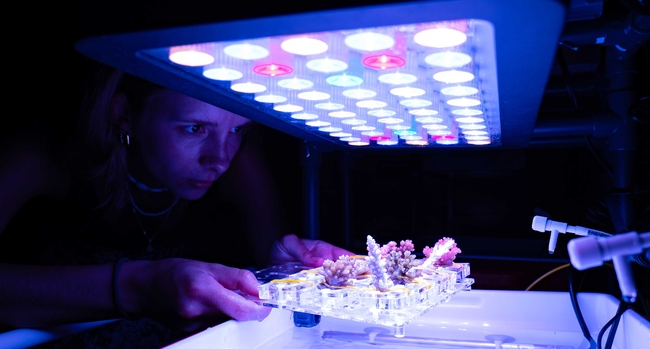The near future of coral reefs is in jeopardy
Coral reefs are one of five major Earth systems on track to cross a drastic tipping point this century. This responds mainly to the devastating effect of heat waves superimposed on the gradually increasing temperatures of tropical oceans. Heat stress exceeds coral thermal limits, triggering the breakdown of their vital symbiosis with their photosynthetic algae (Symbiodiniaceae), and causing increasingly frequent global-scale coral bleaching events.
Proactive human interventions to counteract reef loss through restoration or assisted evolution are called for, yet unlikely to succeed if green-house gas emissions are not curbed. Further, these efforts should be grounded on a solid understanding of what determines the natural capacity of corals to tolerate and adapt to heat stress.
This project has investigated a) the polyp-scale production of reactive oxygen species during heat stress and its role in the breakdown of the coral-zooxanthellae symbiosis (in the laboratory), b) the variability of natural heat tolerance of corals among species, habitats, and seasons (in Fiji), and c) whether thermal tolerance of donor colonies is maintained throughout the three different stages of a standard nursery-based coral reef restoration programme (i.e., donor reef, nursery and outplanting site in the Seychelles).
This project, developed in cooperation with the Voolstra Lab at the University of Konstanz uses the Coral Bleaching Automated Stress System (CBASS) in different locations including coupling it with fine-scale microsensors. Part of the results have been published here. Another three publications are in preparation.






